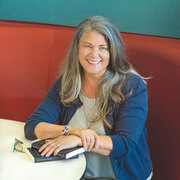|
I read a lot of books, but do a terrible job of keeping track of what I read. I can never answer those pesky questions people are always asking. You know, read any good books lately? Well, I have. Here are three. I vow to do a better job of keeping track, particularly as one of commitments I've made is to write more reviews, particularly of small press books that might not otherwise get much attention.  Prize for the Fire by Rilla Askew is historical fiction from the time of Henry VIII. The period language caused me some initial trepidation. It needn’t have. Within pages, I was hooked. It wasn’t the historical period that drew me in, though the author’s extensive research shone through in the myriad details of settings, customs, and class distinctions. It wasn’t the atrocities and absurdities in the name of Crown and religion, or the bone-chilling constraints placed on women (and the parallels one might draw to conditions for many women and girls today) that kept me turning the pages—though these elements are presented with skill, never overdone or intrusive. What bound me to the narrative were the characterizations of Anne and all the supporting characters, as well as the story itself. Prize for the Fire is a gripping saga, a recreation of the martyrdom of Anne Askew, condemned by the Church of England to be burned at the stake in 1546 for heresy—namely, refusing to denounce her Protestant faith and her steadfast refusal to accept the Eucharist as the literal blood and body of Christ, though it meant never seeing her two sons again, imprisonment in the dankest of London prisons, unspeakable pain by torture, and ultimately death by fire (find the rest of the review here on the Story Circle website).  Nancy Stohlman's AFTER THE RAPTURE is like nothing I have read before. That's exactly what I was hoping and expecting it to be. The pieces and parts of Stohlman's novel in flash form a whole. And, each piece tells its own story, often in ways that are unlike the others. Her characters, many of whom recur, are lost, wandering and confused—before the Rapture, during the Rapture and after the Rapture. Recurring motifs and markers of Americana and consumer culture—Walmart, NASCAR, Barbie's Dream House, Barbie, Ken and Skipper—ground the prose in the familiar. They lend a sense of whimsy and the childlike surprise of opening presents (not knowing what's going to be inside the next box . . . or story) while the overall emotional impact hits you in the gut. At this time in America, we are mired in fear and conflict about what our dream house is, or ever was. The dystopia of AFTER THE RAPTURE lands on a surreal, fantastical, and, in the end, hopeful note. I highly recommend it.  Cora's Kitchen by Kimberly Garrett Brown is historical fiction set in Harlem in the 1920s. I just finished reading it, loved it, and need to review it! Definitely 5 stars! The novel has been shortlisted for the Sarton Award in Historical Fiction.
0 Comments
|
Dorothy, author of GRAY IS THE NEW BLACK, blogs about the challenges and opportunities of being a woman and a writer of a certain age in a youth-centric universe.
categories
All
archives
July 2024
|
